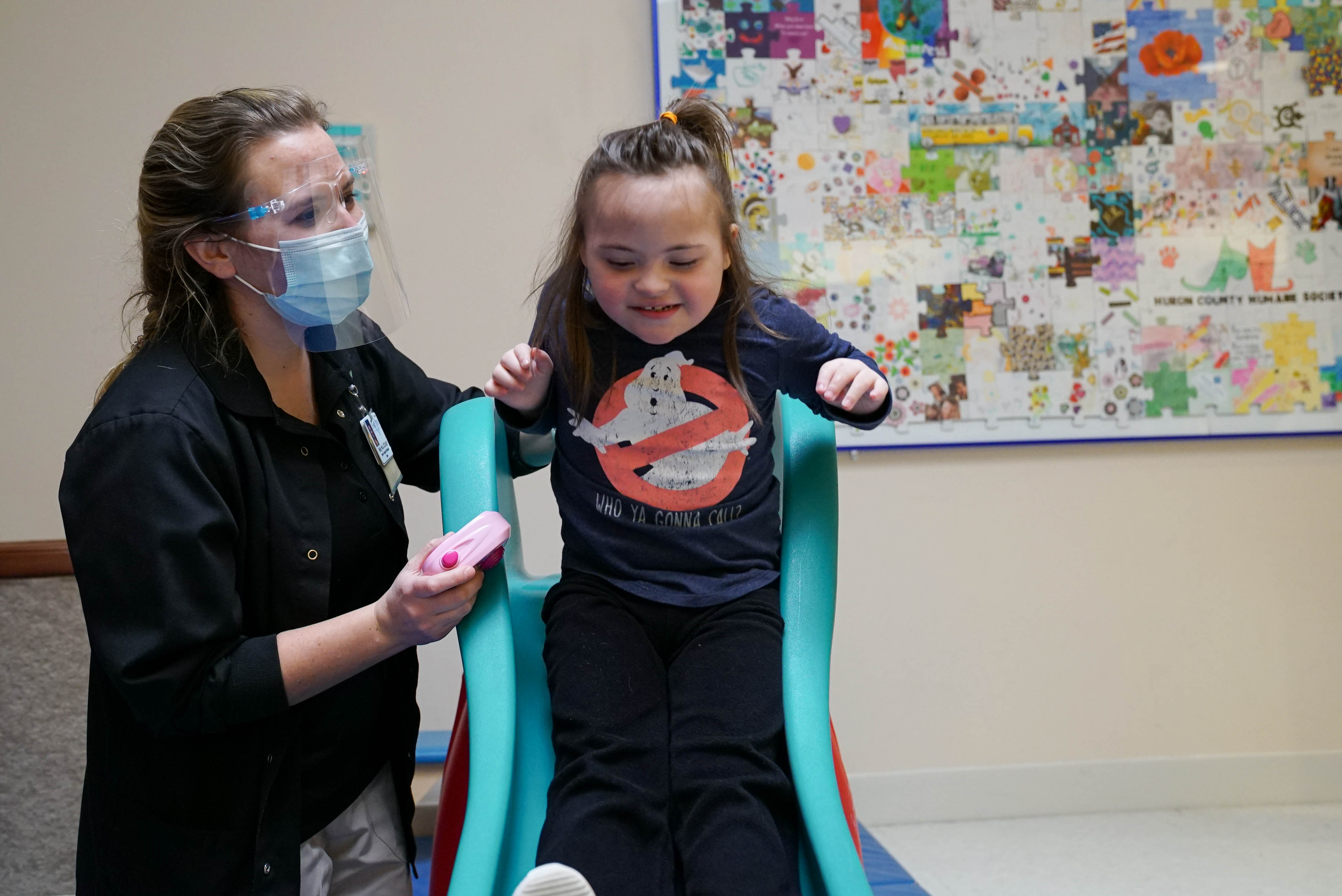World Down Syndrome Day: March 21
March 21st is World Down Syndrome Day. It’s a day dedicated to shedding light on Down syndrome and recognizing the dignity, rights, and well-being of people with Down syndrome across the world.


What is Down Syndrome?
Down syndrome is a genetic disorder where a person has three copies of chromosome 21 instead of two. The CDC estimated in 2011 that the frequency of Down Syndrome is around 1 in 691 live births.
Here are some facts about Down syndrome:
- The average lifespan is around 60 years today, a significant increase from what it used to be.
- Although people with Down syndrome have physical and intellectual delays from birth, there is a wide range of abilities within the population.
- A growing number of people with Down syndrome are living independently.
- People with Down syndrome are predisposed to certain medical conditions including congenital heart defects, sleep apnea, and Alzheimer’s disease.
- There may be an increased risk of celiac disease, autism, childhood leukemia, and seizures.
- Some research shows that people with Down syndrome who have certain heart defects or childhood leukemia are more likely than their typical counterparts to recover or recover quickly.
- Appropriate medical care for children and adults with Down syndrome can make a huge difference in their physical and intellectual development.
- Early intervention for babies with Down syndrome is important. Therapies in their first five years can make a huge difference.
Individuals with Down syndrome should have the opportunity to enhance their quality of life, realize their life aspirations and become valued members of their communities. Over their lifespan, they may have a care team to help with these goals including physicians, special educators, speech therapists, occupational therapists, physical therapists, and/or social workers.
At Fisher-Titus Medical Center, we provide a variety of treatments and services to help individuals with Down syndrome and their families:
Physical Therapy: Activities and exercises that help build motor skills, increase muscle strength, and improve posture and balance. Rolling over, crawling, and reaching help infants learn about and interact with the world around them. A physical therapist can also help a child with Down syndrome compensate for any physical challenges.
Speech therapy: Helps improve their communication skills and use language more efficiently. Speech is often delayed for individuals with Down syndrome. A speech therapist can help them develop skills necessary for communication and even help infants with breastfeeding as that can help build muscles used for speech. In many cases, a child can understand language and want to communicate before they are able to speak. The therapist can work with the child to develop alternate forms of communication like sign language or pictures. Through therapy they can also learn conversation skills, pronunciation, reading comprehension, and learning and remember words. Learning to communicate is an ongoing process so these therapies are often beneficial as children with Down syndrome enter school and even later in life.
Occupational Therapy: Helps adjust everyday tasks and conditions to match a person’s needs and abilities. This can help individuals with Down syndrome learn self-care skills like eating, getting dressed, writing, and using a computer. The occupational therapist can also suggest tools to help improve everyday functions. As the child grows and enters high school, the therapist may help teenagers find jobs, careers, or skills that match their interests and strengths.
Emotional and Behavioral Therapies: Children with Down syndrome may become frustrated, develop compulsive behaviors, and have Attention Deficit Hyperactivity Disorder and other mental health issues. The therapists can help understand why a child is acting out, create strategies for avoiding or preventing these situations, and teach positive ways of responding. They can help the child deal with emotions and build coping and interpersonal skills. These therapists can also help parents with guidance on how to help their child manage day-to-day challenges and reach their full potential.
For more information on physical, occupational or speech therapy, call 419-660-2700 or talk to your child’s primary care provider about a referral. For more information on emotional or behavioral therapy, visit fishertitus.org/behavioral-health.
About Lindsey
Lindsey Esker, MA, CCC-SLP is a Rehabilitation Manger at Fisher-Titus. Fisher-Titus has been providing outpatient pediatric therapy since 1985. Our specialized pediatric team offers therapy for children of all ages and diagnoses. For more information, visit fishertitus.org/rehabilitation-services.
